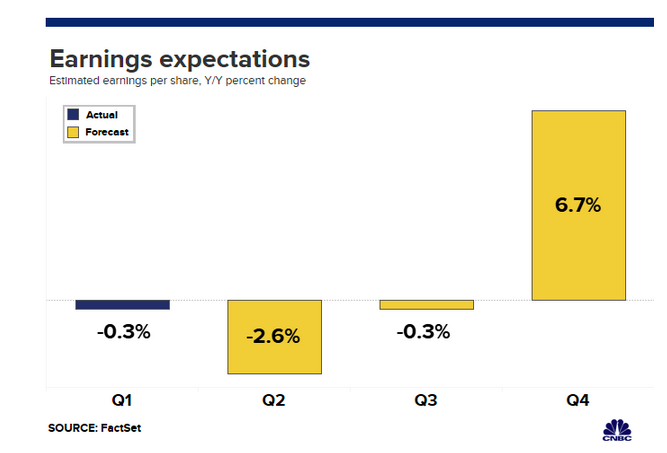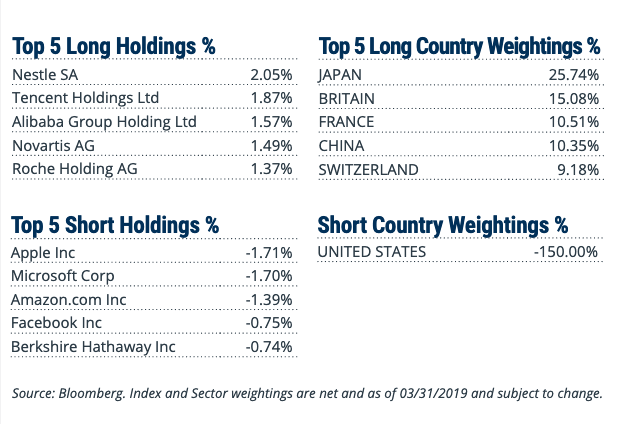Analysts knew that the white-hot year for U.S. equities in 2018 would be difficult to duplicate in 2019 as corporate earnings would see a decline, but with fears of a global economic slowdown and trade wars, earnings could decelerate quicker than expected. In particular, an earnings slowdown in the second quarter of 2019 could very well flow over into the third quarter thanks to U.S.-China trade negotiations breaking down.
“Analysts are pricing in a longer drawn-out trade war and are taking a whack at estimates,” said Art Hogan, chief market strategist at National Holdings Corp. “I think that’s logical. That begets the next question: Do we look expensive compared to what we know and what estimates look like?”
Data company FactSet is estimating that the third quarter outlook has changed from a gain of 0.2 percent to a slight decline of 0.3 percent as of late last week. The Q1 0.3 percent decline and Q2 drop of 2.6 percent would equate to the first three-quarter pullback in corporate profits in three years.

An earnings recession from Q4 2015 through Q2 2016 was the last time this three-peat of declines occurred.
“Our view remains that the US economy is experiencing a material slowdown after running too hot last year and this slowdown is now manifesting itself in poor earnings growth and deteriorating economic conditions,” Michael Wilson, equity strategist at Morgan Stanley, said in a note to clients.
If analysts and corresponding data are correct, this could make for an interesting play in international equities gaining strength over U.S. equities.
The Direxion FTSE International Over US ETF (NYSEArca: RWIU) gives investors the opportunity to capitalize on their hunch that international equities will outdo U.S. equities, but given the latest trade talk progress, can this strategic play come into fruition?
RWIU seeks investment results, before fees and expenses, that track the FTSE All-World ex US/Russell 1000 150/50 Net Spread Index. The FTSE All-World ex US/Russell 1000® 150/50 Net Spread Index (R1AWXUNC) measures the performance of a portfolio that has 150 percent long exposure to the FTSE All-World ex US Index and 50 percent short exposure to the Russell 1000® Index.
On a monthly basis, the Index will rebalance such that the weight of the Long Component is equal to 150 percent and the weight of the Short Component is equal to 50 percent of the Index value. In tracking the Index, the Fund seeks to provide a vehicle for investors looking to efficiently express an international over domestic investment view by overweighting exposure to the Long Component and shorting exposure to the Short Component.

For more relative market trends, visit our Relative Value Channel.

